In the historical records of Indonesia’s struggle for independence, not many people know that international support for Indonesia’s freedom had already emerged even before the Proclamation of August 17, 1945 was declared. One of the key figures who gave early recognition to Indonesia as an independent nation was the Grand Mufti of Palestine, Sheikh Muhammad Amin al-Husseini. He was a prominent Islamic scholar as well as an influential statesman in the Muslim world and the Middle East.
In 1944, amid the turmoil of World War II, Sheikh al-Husseini officially expressed his support for Indonesia’s independence through an Arabic-language radio broadcast from Berlin, Germany. This public statement became a strong symbol of Islamic world solidarity with the Indonesian people’s struggle against colonialism.
Historically, this recognition was one of the first forms of de facto acknowledgment of Indonesia as a sovereign nation, even before the official Proclamation of Independence. This support from Palestine became an important part of the international diplomacy narrative that backed the birth of the Republic of Indonesia.
The support expressed by Sheikh Amin al-Husseini was not merely symbolic. With his strategic position as a central figure in the Muslim world, his statement carried significant political weight. He stood not only as a scholar, but also as a unifying figure who voiced the aspirations of independence and Muslim solidarity across national borders.
Also Read: The Forty-Four-Days of Glory: Azerbaijan’s Struggle for Justice and Peace
Furthermore, the spirit of Muslim solidarity was also reflected through the role of other Palestinian figures such as Muhammad Ali Taher, who not only offered moral support but also contributed materially, donating much of his wealth to aid Indonesia’s independence struggle. This assistance was concrete proof that Indonesia’s fight for freedom gained sympathy and broad support from the Muslim world.
The historical ties forged during the independence struggle later became a strong foundation for Indonesia in extending its support for Palestine’s struggle for independence after achieving its own. This diplomatic reciprocity reflected the values of solidarity and brotherhood rooted in the shared history of the two nations.
The culmination of this historical bond was seen again when Sheikh Amin al-Husseini visited Yogyakarta in 1955. During this historic visit, he delivered a message emphasizing the importance of Muslim unity and continued support for Palestinian independence, which to this day remains a long-standing struggle.
Amin al-Husseini served as the Grand Mufti of Jerusalem, the highest Islamic religious authority under the British Mandate in Palestine, from 1921 to 1937. During his tenure, al-Husseini was known as a thinker and political activist of pan-Arabism, advocating three main ideas: the realization of a federation of Arab states, rejection of Jewish immigration to Palestine, and opposition to Zionist aspirations in the region.
Also Read: Palestine Solidarity Month: A Collective Movement for Al-Aqsa and Palestine’s Freedom
After being removed from office by the British authorities due to his active role in resistance, al-Husseini lived in exile between 1937 and 1945. During this period, he built his image as a defender of the Arab and Muslim world, seeking strategic alliances with the Axis Powers, particularly Nazi Germany and Fascist Italy. His goal was to secure support for the independence of Arab nations and their right to political unity based on Islamic, particularly Arab, cultural and national identity.
In his alliance with the Axis, al-Husseini was actively involved in political propaganda. Through radio broadcasts, he voiced anti-British, anti-Zionist, and pro-Axis messages to the Arab world. He also called for armed resistance against British and Jewish forces in the Middle East. Moreover, he recruited young Muslims to join German military units, including the Waffen-SS and other supporting divisions.
At the same time, the Axis powers used al-Husseini as a political instrument to influence Muslim populations in territories under their control or influence. Their aim was to stir rebellion against the Allies and create instability in geopolitically strategic regions.
However, the alliance did not last as expected. As the Axis powers crumbled toward the end of World War II, Germany and Italy failed to fulfill their promises to support al-Husseini’s political ambitions.
Also Read: Hassan al-Turabi: A Controversial Thinker from Sudan
In 1945, he was detained by the French government, but a year later he managed to escape to Egypt. There, he resumed his struggle, focusing more on Palestinian nationalism and opposition to the establishment of the state of Israel.
He passed away in Beirut, Lebanon, on July 4, 1974, leaving behind a long legacy as a controversial yet significant figure in the history of the Muslim world. [Nia]
Mi’raj News Agency (MINA)
Also Read: Who Exactly is the RSF Group Shaking Sudan?






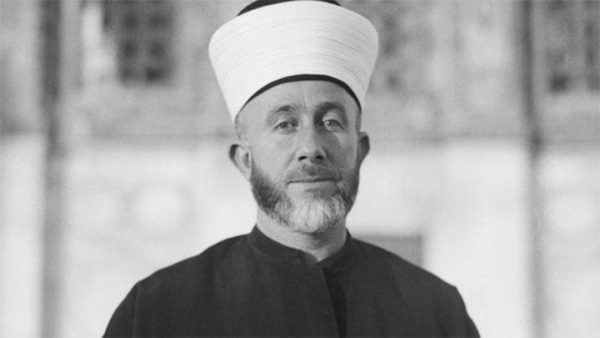



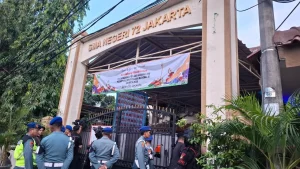
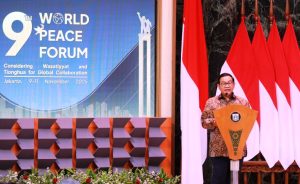


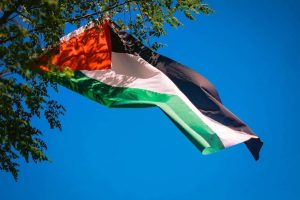
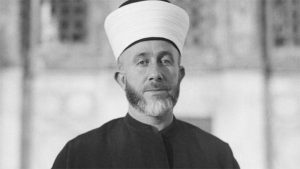
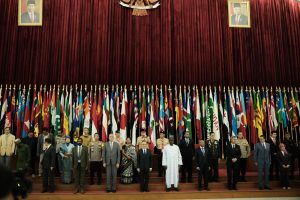













 Mina Indonesia
Mina Indonesia Mina Arabic
Mina Arabic